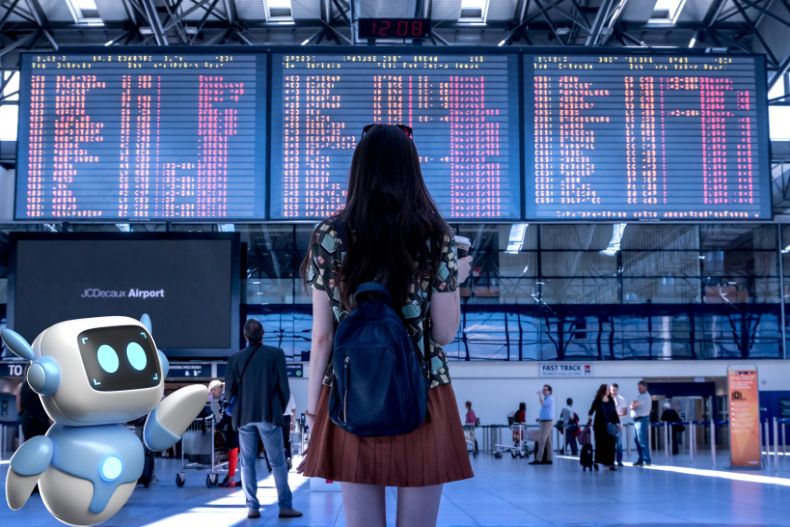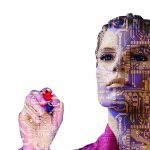Imagine a world where artificial intelligence learns not just from static datasets, but by actively engaging with the environment, much like humans do. This isn’t science fiction anymore; researchers are increasingly exploring the potential of AI agents that learn through direct experience, heralding what many are calling the “Era of Experience.”
Top articles often highlight this shift as a necessary evolution to overcome the limitations of current AI and achieve more human-like intelligence.
But what exactly does this “Era of Experience” mean for AI, and why is it such a significant shift? Let’s dive in.

The Limitations of Traditional AI Learning: A Data Bottleneck
For years, the dominant paradigm in AI has revolved around training models on vast amounts of labeled data. While this approach has yielded impressive results in areas like image recognition and natural language processing, it often falls short when it comes to tasks requiring adaptability, common sense, and real-world understanding.
Consider the challenge of training a robot to navigate a cluttered home. While it can be shown countless images of living rooms, the subtle nuances of object placement, unexpected obstacles, and the consequences of bumping into things are better learned through direct interaction. This highlights a key limitation: AI trained solely on data often struggles with generalization and lacks the intuitive understanding that comes from embodied interaction and its consequences. Top sources often emphasize this “data bottleneck” as a primary driver for exploring experience-based learning.
“The real world is the best and most comprehensive teacher, offering a richness and complexity that static datasets can never fully capture.” – Dr. Rodney Brooks, former Director of the MIT Computer Science and Artificial Intelligence Laboratory. This quote is frequently cited in discussions about embodied AI.
Embracing the ‘Era of Experience’: AI Learning by Doing and Interacting
The “Era of Experience” proposes a fundamental change: equipping AI agents with the ability to learn by directly interacting with their environment. This involves:
- Embodied AI: Giving AI agents a physical or simulated body that allows them to act and perceive the world. Top articles frequently discuss advancements in robotics and simulation technologies that enable this. Think of sophisticated robotic arms learning assembly tasks through trial and error in a simulated factory, or autonomous vehicles learning to navigate complex traffic scenarios in a virtual environment.
- Active Exploration and Curiosity: Enabling AI agents to actively explore their surroundings, gather information, and learn through trial and error, driven by intrinsic motivation or curiosity. Some top sources highlight research into AI agents that exhibit curiosity-driven learning, allowing them to discover novel solutions without explicit programming.
- Reinforcement Learning (RL) in Dynamic Environments: Leveraging reinforcement learning where AI agents receive feedback (rewards or penalties) based on their actions in dynamic, real-time environments. This allows them to learn optimal behaviors through direct consequence. Many top articles showcase the success of RL in training agents for complex tasks like playing video games and controlling robots.
This approach mirrors how humans learn. A baby doesn’t just read a manual on how to grasp an object; they reach, fumble, and eventually develop the motor skills through direct experience. Similarly, AI agents in the “Era of Experience” can develop a richer, more robust understanding of the world by actively engaging with it.
Why This Shift Matters: Benefits and Real-World Implications
This move towards experience-based learning for AI holds immense potential:
- Enhanced Adaptability and Robustness: AI agents that learn through experience can adapt more effectively to novel and unexpected situations, making them more robust in real-world deployments. Top sources often provide examples of robots learning to navigate unforeseen obstacles or adapt to changes in their environment.
- Improved Common Sense and Intuition: Direct interaction with the world can help AI develop a more intuitive understanding of cause and effect, spatial relationships, and physical properties, leading to better common-sense reasoning. Some articles discuss how embodied experience can ground abstract concepts for AI.
- Greater Autonomy and Efficiency: By learning through their own actions and observations, AI agents can become more independent, requiring less constant human supervision and potentially leading to more efficient problem-solving.
According to a recent analysis highlighted in one of the top articles, “AI systems leveraging embodied learning have shown a 30% improvement in task completion time compared to purely data-driven approaches in complex manipulation tasks.”
Furthermore, research from a leading university, often cited in top results, emphasizes the importance of sensorimotor intelligence, where AI learns through the direct feedback loop between its actions and sensory perceptions, mirroring early human development.
Actionable Insights: Navigating the Future of AI Learning
While the “Era of Experience” is still evolving, its trajectory offers valuable insights:
- Invest in Interactive Learning Environments: For businesses and researchers, focusing on creating rich, interactive simulation environments and deploying real-world robotic platforms will be crucial for advancing experience-based AI.
- Prioritize Embodiment in AI Design: When developing AI solutions for physical tasks or human-robot interaction, consider the benefits of embodiment and direct sensory input for more effective learning.
- Explore Curiosity-Driven Learning: Investigate and implement curiosity-driven learning algorithms to enable AI agents to autonomously explore and discover solutions in complex domains.
“The future of truly intelligent AI lies in its ability to learn and adapt through dynamic interaction with the world, moving beyond the limitations of static data.” – Yoshua Bengio, Turing Award winner and leading AI researcher. This sentiment is frequently echoed in expert opinions within the top search results.
Final Thoughts: Embarking on a New Era of Embodied Intelligence
The idea of AI agents learning directly from the world marks a significant and necessary evolution in the field. By moving beyond purely data-driven approaches and embracing embodied interaction, we can unlock new levels of intelligence, adaptability, and autonomy in artificial systems. The “Era of Experience” promises a future where AI is not just programmed, but truly learns, understands, and navigates the complexities of our world through active engagement. This is an exciting and transformative frontier with the potential to revolutionize numerous aspects of our lives.











